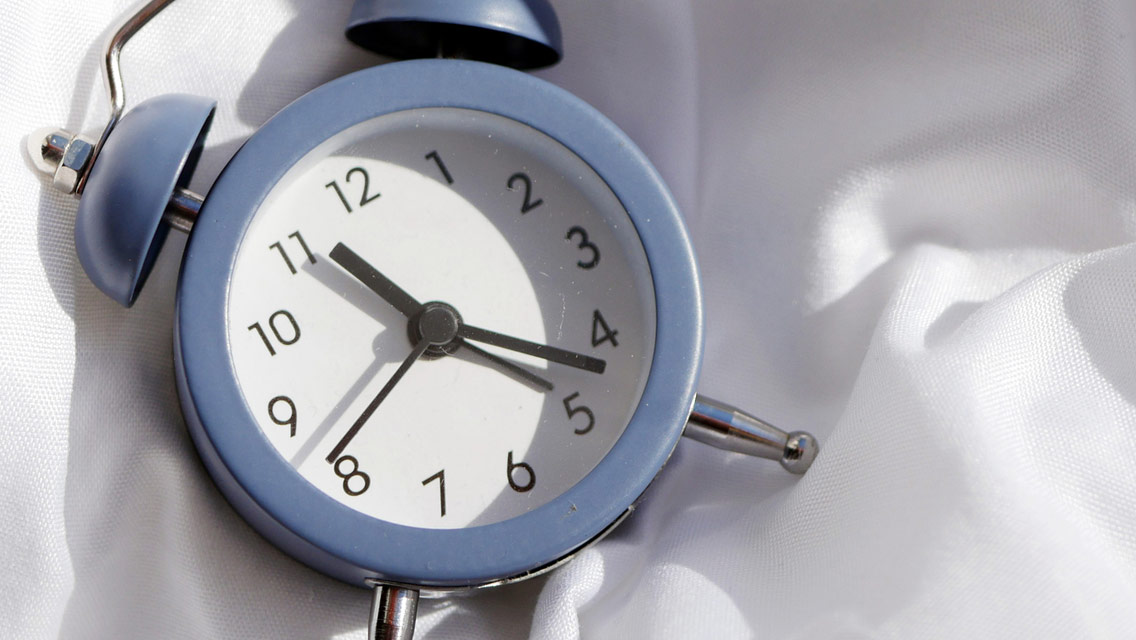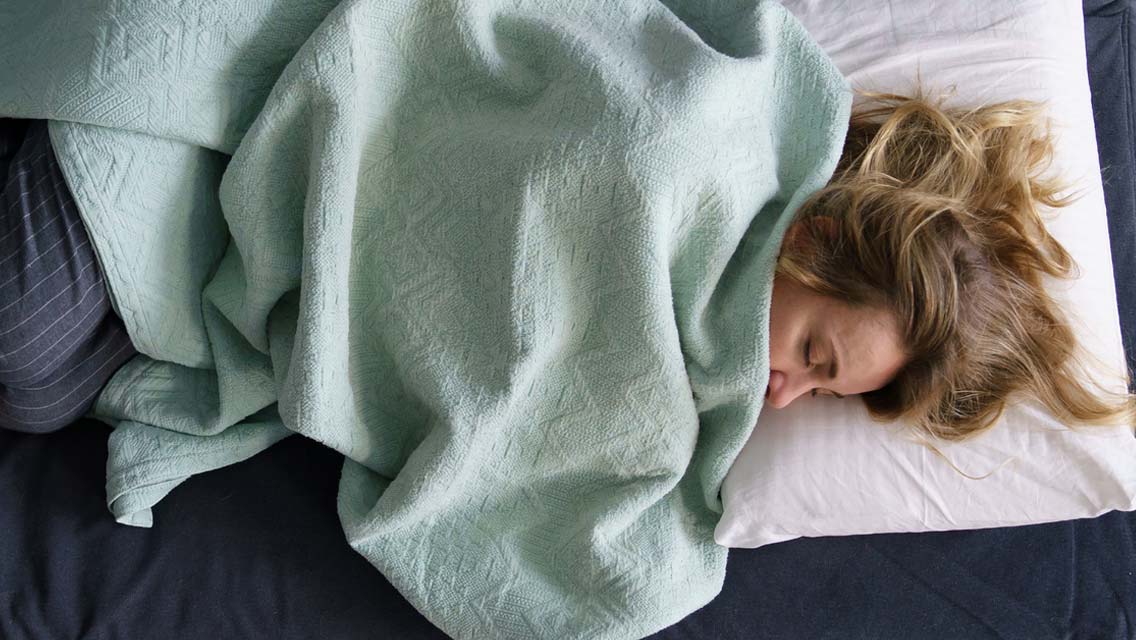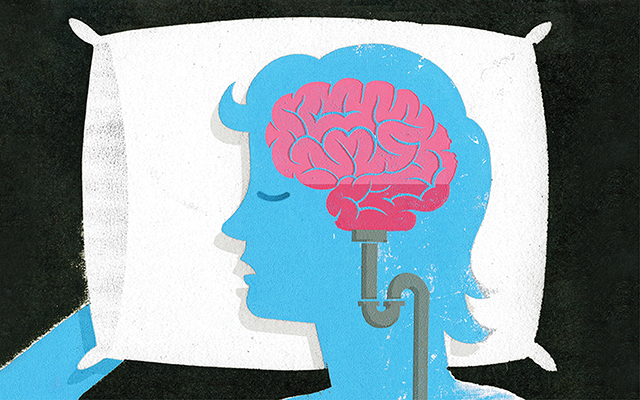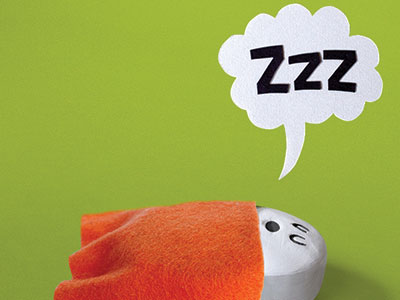Feeling down or anxious during the day? Your bedtime may be to blame.
According to a 2014 study from Binghamton University in New York, your sleep schedule can have a big influence on your mood and stress level.
The study compared the bedtimes and average hours of shuteye of 100 study participants (half men, half women, ranging in age from 17 to 33), who completed questionnaires about their moods.
Not surprisingly, researchers discovered that those who log less sleep are more likely to fall into negative thought patterns, such as excessive worrying, brooding, obsessiveness, or pessimism (hence the common expression “tired and cranky”). Researchers also found that participants who slept for only a few hours at a time or were disrupted during their sleep were more prone to pessimistic thinking.
Researchers found that subjects who went to sleep and got up earlier reported better moods.
The more interesting finding, however, is that more sleep is not the only factor. When you get your sleep appears to matter, too.
Researchers found that subjects who went to sleep and got up earlier reported better moods. Night owls who stayed up late — even if they slept in to compensate — tended to worry and ruminate more than their early-bird counterparts.
Study coauthor and graduate clinician Jacob Nota, MS, observes that for those who are stressed, anxious, or “bothered by intrusive thoughts during the day,” a simple adjustment of sleep schedule could prove to be “an inexpensive and easy intervention.”
Willing to give it a try? Nota suggests that you “go to bed a couple of hours after dark.” He also recommends forgoing television in the hour or so prior to sleep, and avoiding any other stimulating distractions or electronic light sources that might throw off your circadian rhythms.
So will doctors soon start prescribing earlier bedtimes? Additional research is needed to confirm that getting to sleep earlier diminishes anxiety, but these findings highlight how lifestyle can influence mood and perspective. By changing habits that are under your control — like what time you go to bed — you might also change your frame of mind.
Q&A With Jacob Nota, MS
Jacob Nota, MS is this study’s coauthor and Graduate Clinician at Binghamton Anxiety Clinic in the Department of Psychology of New York’s Binghamton University.
Experience Life | In the study report, you write that less sleep at night can lead to more rumination during the day: Is there an amount of sleep hours where this starts to become noticeable — such as six hours of sleep versus the recommended seven to eight?
Jacob Nota | We found that the transdiagnostic measure of repetitive negative thinking [RNT] was cross-sectionally associated with shorter sleep duration. This is slightly different than saying that shorter sleep duration leads to more rumination during the day. Our study cannot differentiate which comes first — sleep disruption or repetitive negative thinking — because we asked about both variables at the same time.
I’m hesitant to pick a certain “cut-off” because this will vary a lot between individuals. We know that some individuals need more or less sleep and that some individuals feel best going to bed earlier or later. However, I can say that in our study we had people who got between 11 and four hours of sleep per night, and there was an increase in reported rumination associated with decreasing sleep time across that range.
Now, in general, most people need about eight hours per night, and studies have shown that chronically reducing even down to about six and a half hours per night can have effects as serious as 24 to 48 hours of total sleep deprivation on certain aspects of functioning. But our study can’t say anything in particular about whether repetitive negative thinking is related to any certain level of sleep disruption.
EL | You note that going to bed later at night can lead to more obsessive-compulsive symptoms: Is there a specific time range where you noticed this? Going to bed after 11 p.m., for instance?
Jacob Nota | Similarly, we can’t say anything about directionality in the relation between bedtimes and obsessive-compulsive [OC] symptoms. However, I can say that in our study we had people who went to bed between 10 p.m. and 5 a.m., and there was an increase in reported OC symptoms associated with bedtimes getting later across that range.
In general, most people should naturally — for example, without TV and other distractions and sources of light throwing off our circadian rhythms — go to bed a couple of hours after dark [depending on the season]. So somewhere in the 10 to 12 p.m. range. However, there are large ranges around this where people will feel their best.
EL | You state that people who endorse both later sleep and activity times also report more repetitive negative thinking: Does this mean going to bed later and sleeping in later in the morning? And again, are there any time ranges you can pinpoint here?
Jacob Nota | We are referring here to chronotype. This is a measure of an individual’s “feeling best” rhythm. For example, some people feel happiest and perform their best when they do things in the earlier part of the day and get tired earlier in the evening — so-called morning-type people. Some people feel happiest and perform their best when they do things in the later part of the day and they get tired later at night — evening types. Most people fall somewhere in-between these extremes — neither types.
What we found in our study is that individuals who are evening types (as determined by a widely used and validated questionnaire) reported more of these repetitive negative-thinking symptoms than those who rated themselves as a morning or neither type.
This variable is associated with an individual’s biological circadian rhythms and is not one that is theoretically very malleable. However, circadian rhythms do shift in reaction to the environment. Most notably in response to exposure to light in the morning or evening. So, people who are interested in trying to shift their circadian rhythms earlier are usually recommended to get exposure to light first thing in the morning and then limit their exposure to it in the evening.
Chronotype is also associated with age, as there is a normal developmental shift in chronotype during adolescence, with most individuals in this range shifting toward a more evening type, and then there is a shift toward a morning type during later adulthood. In our study, we saw within a mostly adolescent sample there was an association with chronotype and repetitive negative thinking.
EL | What do you see as the practical takeaway from your study for people who may be bothered by repetitive negative thinking?
Jacob Nota | This is a preliminary study that is just establishing the link between obsessive-compulsive and repetitive negative-thinking symptoms and sleep disruptions. The most notable takeaway from our study is that these kinds of intrusive and disruptive mental experiences are independently related to not just the well-studied sleep duration of our participants, but the less explored sleep timing. Therefore, for researchers, our study suggests that there is utility in exploring how sleep timing and circadian rhythms are related to perseverative and intrusive thought symptoms.
EL | Finally, is there an ideal time of night for people to get their sleep?
Jacob Nota | For most people, our study suggests that getting enough hours of sleep is not giving you the greatest benefit possible — when you get your sleep is important, too. And for most, the earlier you do so, perhaps the better.
This originally appeared as “Early to Bed, Happy to Rise.”




This Post Has 0 Comments